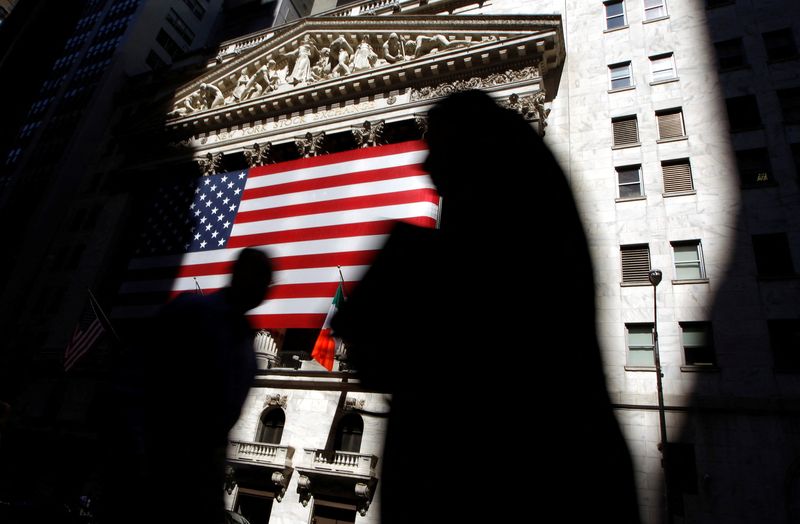Joby Aviation closes $591 million stock offering with full underwriter option
Investing.com - The "underlying cause" of a recent sell-off in U.S. stocks may be linked to "something deeper" than just U.S. President Donald Trump’s tariff proposals, according to analysts at BCA Research.
Jitters over the prospect of the levies have dented market sentiment among investors, who had initially been hopeful that Trump would usher in more pro-growth and business-friendly policies, for much of the first quarter. The benchmark S&P 500 index slipped to its worst opening three months of a year since 2022.
But, in a note to clients, the BCA Research analysts led by Juan Correa said "market dynamics do not suggest" that Trump’s trade stance is the real driver of the sell-off.
"We believe that predicting the specifics of how Trump’s foreign policy will look like after April 2 is not what will help allocators going forward," the analysts said, referring to the date when Trump is expected to unveil a raft of new tariff on both friends and adversaries alike.
Instead, investors should focus on the valuation and policy divergences between the U.S and the rest of the world, they argued, adding that U.S. assets are "still richly priced despite weakening fundamentals" and the country’s fiscal and monetary policy options are "constrained."
European equities have been a major beneficiary of this trend, as sentiment has been bolstered by relatively cheaper valuations and growing calls from regional governments to increase military spending to reduce their reliance on the U.S. for a security backstop. European stocks have seen inflows of $24 billion so far this year, the highest since 2017, Barclays (LON:BARC) data showed.
At the same time, U.S. business and consumer confidence is fading, with uncertainty swirling around how companies will approach future spending and hiring due to Trump’s tariffs, the BCA analysts flagged.
"In contrast to a few years ago, the U.S. economy is more fragile," the analysts wrote.
Meanwhile, the narrative around artificial intelligence has "begun to crack" as investors fret that massive expenditures on the nascent technology may yield little return, they said.
Earlier this year, these concerns were exacerbated by the emergence of an AI model from Chinese start-up DeepSeek that displayed similar performance to peers like OpenAI’s ChatGPT at a fraction of the cost. However, some mega-cap tech companies have indicated that they will press ahead with heavy AI spending as they look to expand their capabilities with the technology.
"While enormous amounts of capex have been spent by U.S. tech, investors are realizing that they do not have a moat over the industry. As a result, the return on investment on this capex will disappoint," the strategists said.
Taken together, these various factors do not favor risk assets, they noted, recommending that investors "stay defensive" by being "underweight equities" -- especially in the U.S. -- and "overweight fixed income."
